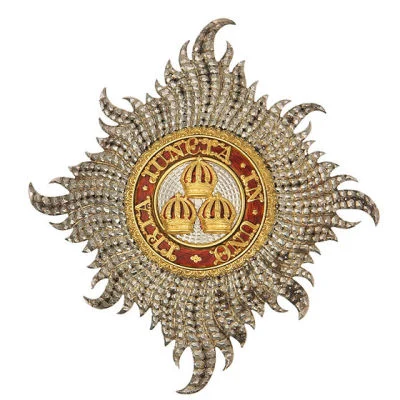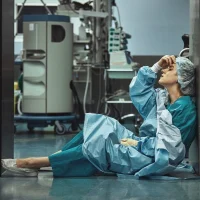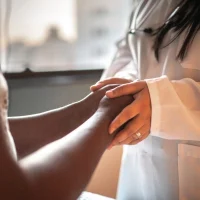On 27 December 2019, the 2020 New Year Honours (NYHs), ie recognition of achievements and service of extraordinary people across the United Kingdom, were officially announced in The London Gazette.
In total, 1,097 people are honoured in 2020, including those
working in healthcare. Among them are Professor Lesley Regan, president of the
Royal College of Obstetricians and Gynaecologists, University of Sussex Professor
Alan Lehmann and NHS England head Simon Stevens, as well as 12 nurses and 5 midwives.
However, a new study shows that in the UK, “a career in healthcare is not as
‘honourable’ as careers in certain other industries”.
You might also like: The Present and Future of Medical Professions
Bend it like Beckham or fix them like Florence–proportional representation of healthcare in New Year honours: an observational study, by Emelifeonwu et al. (2019), analysed how healthcare workers are represented in receipt of NYHs in comparison with workers in other industries. It found that only 7.6% of 10,989 NYHs were awarded to healthcare workers in the period from 2009 to 2018. This share is much smaller than in areas such as sports, politics, arts and media or business.
The UK honours system is a series of honours that are
awarded by the monarch to reward achievements in public life (the guide to honours is
available here).
Not once has it beenaccused
of bias towards certain people in ‘Royal circles’. The system is to be reviewed
so that it “rewards genuine public service.”
The authors point put that the NHS is a genuine public
service employing around 1.5mn people. In terms of its quality, accessibility
and efficiency it scores highly in comparison with other countries. In total, approximately
7% of the entire UK workforce falls on the health sector.
For the NYHs, the most common sectors were community
services and voluntary and local services (27% and 18% of all awards
respectively). Services to education accounted for 11% of awards; services to
business and the economy and for civil and political services for 9% each. Services
to media and the arts received 7%, services to sports 6%, and services to
science and technology 4%.
832, or 8% of all NYHs were bestowed for services to health.
Of those, over a third (34.4%) was given to doctors. Nurses and allied health
professionals each received 14.5%, and healthcare support staff 36.5%.
When considering the sizes of their workforces, however, the
rate of receiving an honour for services to sport was 22.1 times higher than
healthcare. For the arts and media the rate was 5.84 times higher, for services
to business and the economy 3.9 times higher and for civil and political
services 2.66 times higher. The rates of receiving an NYH for services to science and technology and for services to
healthcare were similar.
The study also analysed if gender and geographical biases were
present within NYHs. It found that of 10,979 recipients (available data), 47.1%
were female and 52.9% were male. In 2020, there are 51% of women among the recipients. Also, the
share of women receiving higher order awards in 2009–2018 was significantly lesser
than that of men.
The results show that the major share of awards (one third) went
to people living in London and counties in the Southeast of England while those
living in East England received the lowest number of honours.
The 2020 NYHs will be awarded by as part of the New Year celebrations in the beginning of January. Following is the list of those recognised for their achievements in the healthcare and life sciences.
KNIGHT BACHELOR
- Dr Dennis Barry Gillings CBE – For services to the Advancement of Dementia and to Life Sciences Research.
ORDER OF THE BATH
- Dr Menelas Nicolas PANGALOS, Executive Vice-President, Innovative Medicines and Early Development Biotech Unit, AstraZeneca. For services to UK Science.
- Simon STEVENS, Chief Executive Officer, NHS England and NHS Improvement. For services to the NHS in England.
- Jonathan Richard SYMONDS, C.B.E., Chair, Genomics England and Deputy Group Chairman, HSBC Holdings plc. For services to UK Life Sciences and to Finance.
GCB
- Professor Dame Sally DAVIES, D.B.E., Lately Chief Medical Officer for England, Department of Health and Social Care. For services to Public Health and to Research.
- Clara Jane SWINSON, Director General, Global and Public Health, Department of Health and Social Care. For services to Healthcare Policy.
- David WILLIAMS, Chief Operating Officer, Department of Health and Social Care. For services to Government Finances.
Commander of the Royal Victorian Order
(CVO)
- Professor David Hurst Molyneux – Emeritus Professor, Liverpool School of Tropical Medicine. For services to Controlling Neglected Tropical Diseases.
Knight / Dame Commander of the Order
of the British Empire (KBE/DBE)
- Professor Lesley Regan, President, Royal College of Obstetricians and Gynaecologists For services to Women’s Healthcare.
- Caroline Ann Palmer Yeates, CBE, Chief Executive, Royal Marsden NHS Foundation Trust and National Cancer Director, NHS England and NHS Improvement For services to Cancer Medicine.
Commander of the Order of the British
Empire (CBE)
- Professor Gordon Lawrence Carlson, Consultant Surgeon, Northern Care Alliance NHS Group – For services to General and Intestinal Failure Surgery.
- Dr Paul Travers Elliot, Lately Deputy Chief Inspector of Hospitals, Care Quality Commission – For services to Mental Health.
- Dr Ahalia Navina Evans, Chief Executive Officer, East London NHS Foundation Trust – For services to NHS leadership and the Black, Asian and Minority Ethnic community.
- Professor Alan Robert Lehmann, FRS, Research Professor of Molecular Genetics, University of Sussex – For services to Medical Science, Patients and Families affected by Xeroderma Pigmentosum and Cockayne Syndrome.
- Andrew John McKeon, Chair, The Nuffield Trust – For services to Healthcare.
- Professor John Douglas Pickard – For services to Neurosciences, to Neurosurgery and to Research for Patients with Complex Neurological Disorders.
- Dr Joseph Anthony Rafferty, Chief Executive, Merseycare NHS Foundation Trust – For services to Suicide Prevention.
- Lynette Romeo, Chief Social Worker for England (Adults), Department of Health and Social Care – For services to Social Work.
- Professor Bee Leng Wee, National Clinical Director for End of Life Care, NHS England and NHS Improvement – For services to Palliative and End of Life Care.
Officer of the Order of the British Empire (OBE)
- Dr Debra Helen ADAMS, Assistant Director of Infection Prevention and Control, Midlands and East, NHS England and NHS Improvement. For services to Infection Prevention and Nursing.
- Professor Abdel Ghayoum BABIKER, Professor of Epidemiology and Medical Statistics, University College London. For services to Medical Research.
- Dr Joanne Elizabeth BAILEY, Head of Psychology Services, HM Prison and Probation Service. For services to Forensic Psychology, to Offender Rehabilitation and to Public Safety.
- Professor Karen Louise BARKER, Clinical Director for Trauma and Orthopaedics, Oxford University Hospitals NHS Foundation Trust. For services to Healthcare.
- Juliet Rose Pleydell BOUVERIE, Chief Executive, The Stroke Association. For services to Stroke Survivors.
- Christopher David BRERETON, Chief Environmental Health Officer, Welsh Government. For services to Environmental and Public Health in Wales.
- Dr Victoria TZORTZIOU BROWN, General Practitioner, London Borough of Tower Hamlets and Joint Honorary Secretary, Royal College of General Practitioners. For services to General Practice.
- Carolyn FOX, Chief Nurse, University Hospitals of Leicester NHS Trust. For services to Nursing.
- Dr Susan GREENHALGH, Consultant Physiotherapist, Bolton NHS Foundation Trust. For services to Physiotherapy.
- Professor Philip HOWARD, Consultant Pharmacist, Leeds Teaching Hospitals NHS Trust and lately National Project Lead, Antimicrobial Resistance, NHS Improvement. For services to Healthcare.
- Jeannette HOWE, Head of Pharmacy, Department of Health and Social Care. For services to Pharmacy.
- Dr Ian Robert Burton HUDSON, Lately Chief Executive, Medicines and Healthcare Products Regulatory Agency. For services to Healthcare.
- Henrietta Sophia Lefanu Seymour HUGHES, National Guardian for the NHS and General Practitioner, Brunswick Medical Centre, London Borough of Camden. For services to the NHS.
- Sir Thomas Collingwood HUGHES, Bt, Consultant in Emergency Medicine, Oxford University Hospitals NHS Foundation Trust. For services to Healthcare Technology and Information.
- Karen Ruth JAMES, Chief Executive, Tameside and Glossop Integrated Care NHS Foundation Trust. For services to the NHS.
- Birte HARLEV-LAM, Lately Clinical Director, Maternity and Children, NHS Improvement. For services to Maternity and Young People’s Care.
- Dr Andrew Jonathan LEACH, General Practitioner, Davenal House Surgery, Bromsgrove and Joint Honorary Secretary, Royal College of General Practitioners. For services to General Practice.
- Ann Marie MARR, Chief Executive, St Helens and Knowsley Hospitals NHS Trust. For services to NHS Leadership.
- Professor Sheila Anne Manson McLEAN, F.R.S.E., Professor Emerita of Law and Ethics in Medicine, University of Glasgow. For services to Health and to Education.
- Dr Helen Louise MUNN, Lately Executive Director, Academy of Medical Sciences. For services to the Advancement of Medical Science.
- Sascha Hilary WELLS-MUNRO, Maternity Improvement Adviser, NHS England and NHS Improvement. For services to the NHS and to Patient Safety.
- Professor Helen SANG, F.R.S.E., Head of Division, Functional Genetics and Development, The Roslin Institute. For services to Food Security and to Bioscience for Health.
- Professor Timothy Rutland WALSH. For services to Microbiology and International Development.
- Professor Ian WEEKS, Dean of Clinical Innovation, School of Medicine, Cardiff University. For services to Knowledge Transfer and to Medical Innovation.
- Owen Almando WILLIAMS, Chief Executive, Calderdale and Huddersfield NHS Foundation Trust. For services to Healthcare in West Yorkshire.
References
Emelifeonwu JA et al. (2019) Bend it like Beckham or fix them like Florence–proportional representation of healthcare in New Year honours: an observational study. BMJ 2019;367:l6721. Available from https://www.bmj.com/content/bmj/367/bmj.l6721.full.pdf
Image credit: Civil Knight Grand Cross Star of The Order of
the Bath conferred on President Havel. Národní museum, Praha. Wikimedia
Commons










